Product Description
Japanese Tractor parts inversor transmission gearbox PTO (18006);
Specifications
Cardan shaft
Factory offer
14 month warranty
12year experience
Feature of Cardans
1,; Suitable for Japanese Tractors(Kubota/YM/Iseki);
2,; Material:; Steel casting
3,; Universal joint
4,; All Splined,; Plain Bore Yokes Torque Limiter
5,; Rich experience for over 12 years
6,; France branch can provide long time guarantee
7,; High quality and competitive price
8,; Small orders accepted
9,; OEM is available,; meet IS9001:; 2000 quality system
Company Introduction
HangZhou CZPT Industry & Trade Co.;,; Ltd.;,; is a professional manufacturer and exporter of whole set of farm machines and garden tools for 11 years,; mainly including mowers,; tillers,; plows and Japanese tractor parts,; etc.;
We sincerely welcome customers abroad to visit us to discuss cooperation and seek common development.; We believe our company is your most reliable partner and friend!
Trade Terms
1.; Trade terms:; FOB,; CIF,; EXW
2.; Sample Policy:; You can test the quality of our sample firstly before you purchase them in mass quantity.;
3.; MOQ:; 1 set
4.; Payment Way:; T/T,; L/C,; Western Union,; D/P.;
5.; Delivery Date:; 10-30 days after deposit paid.; It depends on your order quantity.;
6.; Shipping Way:; By Sea or By Air.;
7.; After Service:; 14 months guarantee of the main parts,; we will send the guarantee parts together with the machine in your next order or we can send them by air express if you need them urgently.;
Best After-Sale Service
We have France Branch.; CZPT Europe can give Europe customer best service.;
1.; CZPT Europe can drive the car to repair the machine once you give the calling.;
2.; CZPT Europe can send the spare parts to the customers in time.;
3.; Our machine Warranty time:; 14 months.; We provide free spare parts.;
4.; We provide lifetime repair service and spare parts.; You just tell us what you want.; We will give you the solution in time.;
5.; If the CZPT Europe cannot give you the satisfaction.; The head office engineer is willing to wear the CZPT blue Uniform clothes to your site for repair.;
Some Parts Specifications:;
| Code | Description |
| 29001 | Cardan B5000 |
| 29002 | Cardan B1400/B1500 |
| 29003 | Cardan YM F14 |
| 29004 | Cardan B7000 |
| 29005 | Cardan TX1400 |
| 29006 | Cardan TX1500 |
| 29007 | Cardan TU1400 |
| 42001 | Shaft B7001 |
| 42002 | shaft KB with gear,;L:;393mm,; D13,;22,;17,;26 |
| 42003 | shaft Yanma,; L236mm |
| 42004 | shaft B5000/5001 |
| 42005 | shaft PTO B5000 |
| 42006 | shaft PTO B1400 |
| 42007 | shaft PTO B6000 |
| 42008 | shaft with gear TX 1300 |
| 42009 | shaft B-D-V B5000 |
| Type: | Universal Joint |
|---|---|
| Material: | Steel |
| Certification: | ISO, CE |
| Customization: |
Available
| Customized Request |
|---|
.shipping-cost-tm .tm-status-off{background: none;padding:0;color: #1470cc}
| Shipping Cost:
Estimated freight per unit. |
about shipping cost and estimated delivery time. |
|---|
| Payment Method: |
|
|---|---|
|
Initial Payment Full Payment |
| Currency: | US$ |
|---|
| Return&refunds: | You can apply for a refund up to 30 days after receipt of the products. |
|---|
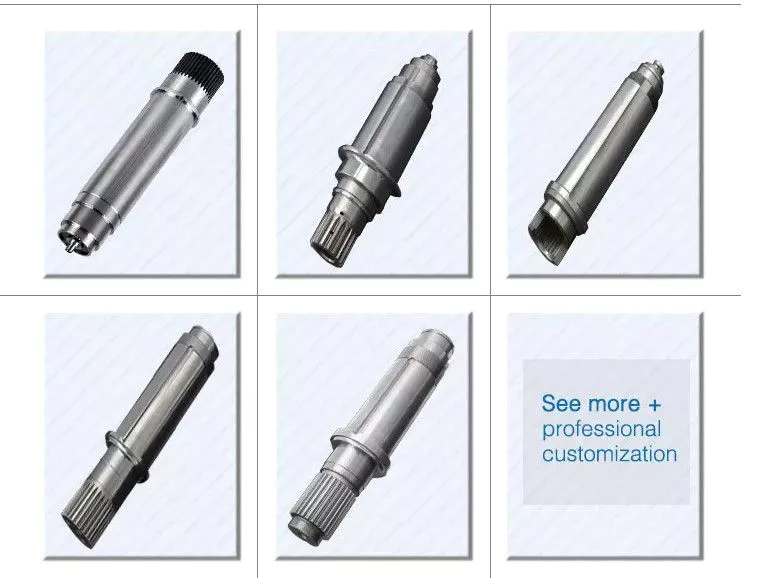
The Different Types of Splines in a Splined Shaft
A splined shaft is a machine component with internal and external splines. The splines are formed in four different ways: Involute, Parallel, Serrated, and Ball. You can learn more about each type of spline in this article. When choosing a splined shaft, be sure to choose the right one for your application. Read on to learn about the different types of splines and how they affect the shaft’s performance.
Involute splines
Involute splines in a splined shaft are used to secure and extend mechanical assemblies. They are smooth, inwardly curving grooves that resist separation during operation. A shaft with involute splines is often longer than the shaft itself. This feature allows for more axial movement. This is beneficial for many applications, especially in a gearbox.
The involute spline is a shaped spline, similar to a parallel spline. It is angled and consists of teeth that create a spiral pattern that enables linear and rotatory motion. It is distinguished from other splines by the serrations on its flanks. It also has a flat top. It is a good option for couplers and other applications where angular movement is necessary.
Involute splines are also called involute teeth because of their shape. They are flat on the top and curved on the sides. These teeth can be either internal or external. As a result, involute splines provide greater surface contact, which helps reduce stress and fatigue. Regardless of the shape, involute splines are generally easy to machine and fit.
Involute splines are a type of splines that are used in splined shafts. These splines have different names, depending on their diameters. An example set of designations is for a 32-tooth male spline, a 2,500-tooth module, and a 30 degree pressure angle. An example of a female spline, a fillet root spline, is used to describe the diameter of the splined shaft.
The effective tooth thickness of splines is dependent on the number of keyways and the type of spline. Involute splines in splined shafts should be designed to engage 25 to 50 percent of the spline teeth during the coupling. Involute splines should be able to withstand the load without cracking.
Parallel splines
Parallel splines are formed on a splined shaft by putting one or more teeth into another. The male spline is positioned at the center of the female spline. The teeth of the male spline are also parallel to the shaft axis, but a common misalignment causes the splines to roll and tilt. This is common in many industrial applications, and there are a number of ways to improve the performance of splines.
Typically, parallel splines are used to reduce friction in a rotating part. The splines on a splined shaft are narrower on the end face than the interior, which makes them more prone to wear. This type of spline is used in a variety of industries, such as machinery, and it also allows for greater efficiency when transmitting torque.
Involute splines on a splined shaft are the most common. They have equally spaced teeth, and are therefore less likely to crack due to fatigue. They also tend to be easy to cut and fit. However, they are not the best type of spline. It is important to understand the difference between parallel and involute splines before deciding on which spline to use.
The difference between splined and involute splines is the size of the grooves. Involute splines are generally larger than parallel splines. These types of splines provide more torque to the gear teeth and reduce stress during operation. They are also more durable and have a longer life span. And because they are used on farm machinery, they are essential in this type of application.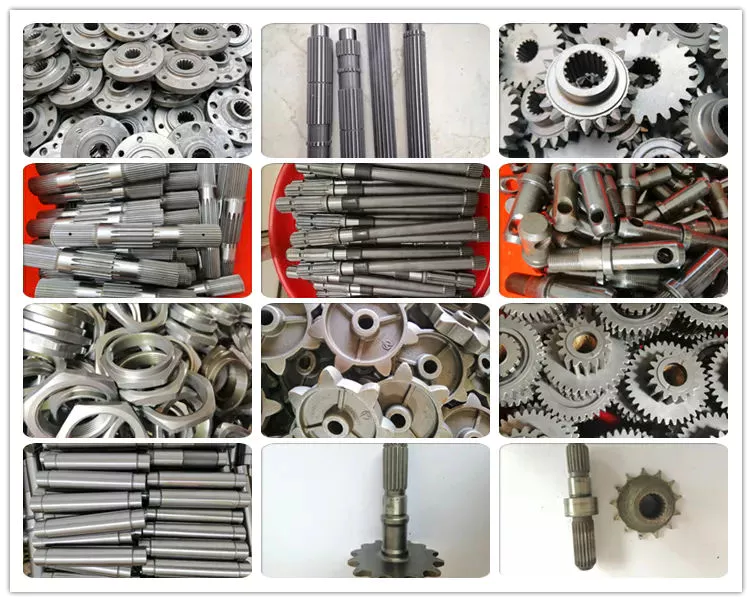
Serrated splines
A Serrated Splined Shaft has several advantages. This type of shaft is highly adjustable. Its large number of teeth allows large torques, and its shorter tooth width allows for greater adjustment. These features make this type of shaft an ideal choice for applications where accuracy is critical. Listed below are some of the benefits of this type of shaft. These benefits are just a few of the advantages. Learn more about this type of shaft.
The process of hobbing is inexpensive and highly accurate. It is useful for external spline shafts, but is not suitable for internal splines. This type of process forms synchronized shapes on the shaft, reducing the manufacturing cycle and stabilizing the relative phase between spline and thread. It uses a grinding wheel to shape the shaft. CZPT Manufacturing has a large inventory of Serrated Splined Shafts.
The teeth of a Serrated Splined Shaft are designed to engage with the hub over the entire circumference of the shaft. The teeth of the shaft are spaced uniformly around the spline, creating a multiple-tooth point of contact over the entire length of the shaft. The results of these analyses are usually satisfactory. But there are some limitations. To begin with, the splines of the Serrated Splined Shaft should be chosen carefully. If the application requires large-scale analysis, it may be necessary to modify the design.
The splines of the Serrated Splined Shaft are also used for other purposes. They can be used to transmit torque to another device. They also act as an anti-rotational device and function as a linear guide. Both the design and the type of splines determine the function of the Splined Shaft. In the automobile industry, they are used in vehicles, aerospace, earth-moving machinery, and many other industries.
Ball splines
The invention relates to a ball-spinned shaft. The shaft comprises a plurality of balls that are arranged in a series and are operatively coupled to a load path section. The balls are capable of rolling endlessly along the path. This invention also relates to a ball bearing. Here, a ball bearing is one of the many types of gears. The following discussion describes the features of a ball bearing.
A ball-splined shaft assembly comprises a shaft with at least one ball-spline groove and a plurality of circumferential step grooves. The shaft is held in a first holding means that extends longitudinally and is rotatably held by a second holding means. Both the shaft and the first holding means are driven relative to one another by a first driving means. It is possible to manufacture a ball-splined shaft in a variety of ways.
A ball-splined shaft features a nut with recirculating balls. The ball-splined nut rides in these grooves to provide linear motion while preventing rotation. A splined shaft with a nut that has recirculating balls can also provide rotary motion. A ball splined shaft also has higher load capacities than a ball bushing. For these reasons, ball splines are an excellent choice for many applications.
In this invention, a pair of ball-spinned shafts are housed in a box under a carrier device 40. Each of the two shafts extends along a longitudinal line of arm 50. One end of each shaft is supported rotatably by a slide block 56. The slide block also has a support arm 58 that supports the center arm 50 in a cantilever fashion.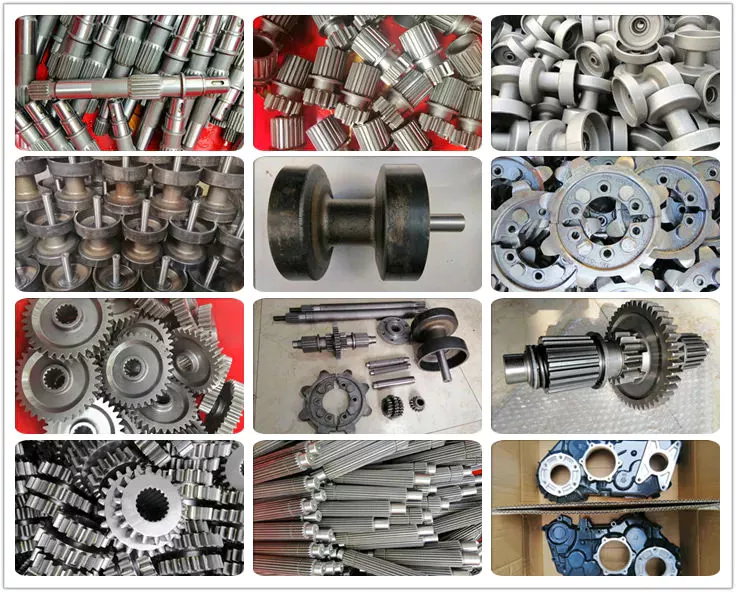
Sector no-go gage
A no-go gauge is a tool that checks the splined shaft for oversize. It is an effective way to determine the oversize condition of a splined shaft without removing the shaft. It measures external splines and serrations. The no-go gage is available in sizes ranging from 19mm to 130mm with a 25mm profile length.
The sector no-go gage has two groups of diametrally opposed teeth. The space between them is manufactured to a maximum space width and the tooth thickness must be within a predetermined tolerance. This gage would be out of tolerance if the splines were measured with a pin. The dimensions of this splined shaft can be found in the respective ANSI or DIN standards.
The go-no-go gage is useful for final inspection of thread pitch diameter. It is also useful for splined shafts and threaded nuts. The thread of a screw must match the contour of the go-no-go gage head to avoid a no-go condition. There is no substitute for a quality machine. It is an essential tool for any splined shaft and fastener manufacturer.
The NO-GO gage can detect changes in tooth thickness. It can be calibrated under ISO17025 standards and has many advantages over a non-go gage. It also gives a visual reference of the thickness of a splined shaft. When the teeth match, the shaft is considered ready for installation. It is a critical process. In some cases, it is impossible to determine the precise length of the shaft spline.
The 45-degree pressure angle is most commonly used for axles and torque-delivering members. This pressure angle is the most economical in terms of tool life, but the splines will not roll neatly like a 30 degree angle. The 45-degree spline is more likely to fall off larger than the other two. Oftentimes, it will also have a crowned look. The 37.5 degree pressure angle is a compromise between the other two pressure angles. It is often used when the splined shaft material is harder than usual.


editor by CX 2023-11-21
China Metal Transmission Spline Shaft with Alloy Steel Material for Gearbox Reducer Engineering Vehicles Automobiles Ships drive shaft coupler
Condition: New
Guarantee: 6 Months
Applicable Industries: Developing Content Shops, Producing Plant, Machinery Fix Shops, Food & Beverage Factory, Farms, Development works , Energy & Mining
Framework: Spline
Substance: carbon metal, alloy metal , bronze/brass
Coatings: Black Oxide
Torque Potential: Custom-made
Design Number: Personalized
Packaging Information: Neutral paper packaging, picket containers for outer box or according to customer’s demand.
Port: ZheJiang Port / HangZhou Port
:
(1). All types of gears, shaft, gear shaft, precision gear and CNC equipment. (2). Specialized in producing all kinds of auto transmission part primarily based on drawings (3). Content: ductile forged iron, carbon metal, alloy steel , Steel Pintle Chains stainless metal, , bronze/brass (4). Modules: M1 to M8 (5). Satisfies ISO, DIN and ASTM expectations (6). Specification : In accordance to the the drawing
(7). Certification: ISO/TS16949:2T Sprocket Mountain Bike Crank Bottom Bracket BB CHangZhou Slender Extensive Bicycle Established 10S ISO/TS16949:2009
How to Calculate Stiffness, Centering Force, Wear and Fatigue Failure of Spline Couplings
There are various types of spline couplings. These couplings have several important properties. These properties are: Stiffness, Involute splines, Misalignment, Wear and fatigue failure. To understand how these characteristics relate to spline couplings, read this article. It will give you the necessary knowledge to determine which type of coupling best suits your needs. Keeping in mind that spline couplings are usually spherical in shape, they are made of steel.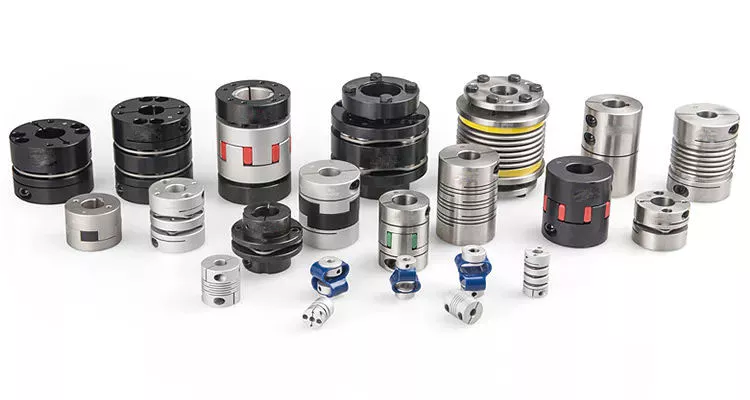
Involute splines
An effective side interference condition minimizes gear misalignment. When two splines are coupled with no spline misalignment, the maximum tensile root stress shifts to the left by five mm. A linear lead variation, which results from multiple connections along the length of the spline contact, increases the effective clearance or interference by a given percentage. This type of misalignment is undesirable for coupling high-speed equipment.
Involute splines are often used in gearboxes. These splines transmit high torque, and are better able to distribute load among multiple teeth throughout the coupling circumference. The involute profile and lead errors are related to the spacing between spline teeth and keyways. For coupling applications, industry practices use splines with 25 to fifty-percent of spline teeth engaged. This load distribution is more uniform than that of conventional single-key couplings.
To determine the optimal tooth engagement for an involved spline coupling, Xiangzhen Xue and colleagues used a computer model to simulate the stress applied to the splines. The results from this study showed that a “permissible” Ruiz parameter should be used in coupling. By predicting the amount of wear and tear on a crowned spline, the researchers could accurately predict how much damage the components will sustain during the coupling process.
There are several ways to determine the optimal pressure angle for an involute spline. Involute splines are commonly measured using a pressure angle of 30 degrees. Similar to gears, involute splines are typically tested through a measurement over pins. This involves inserting specific-sized wires between gear teeth and measuring the distance between them. This method can tell whether the gear has a proper tooth profile.
The spline system shown in Figure 1 illustrates a vibration model. This simulation allows the user to understand how involute splines are used in coupling. The vibration model shows four concentrated mass blocks that represent the prime mover, the internal spline, and the load. It is important to note that the meshing deformation function represents the forces acting on these three components.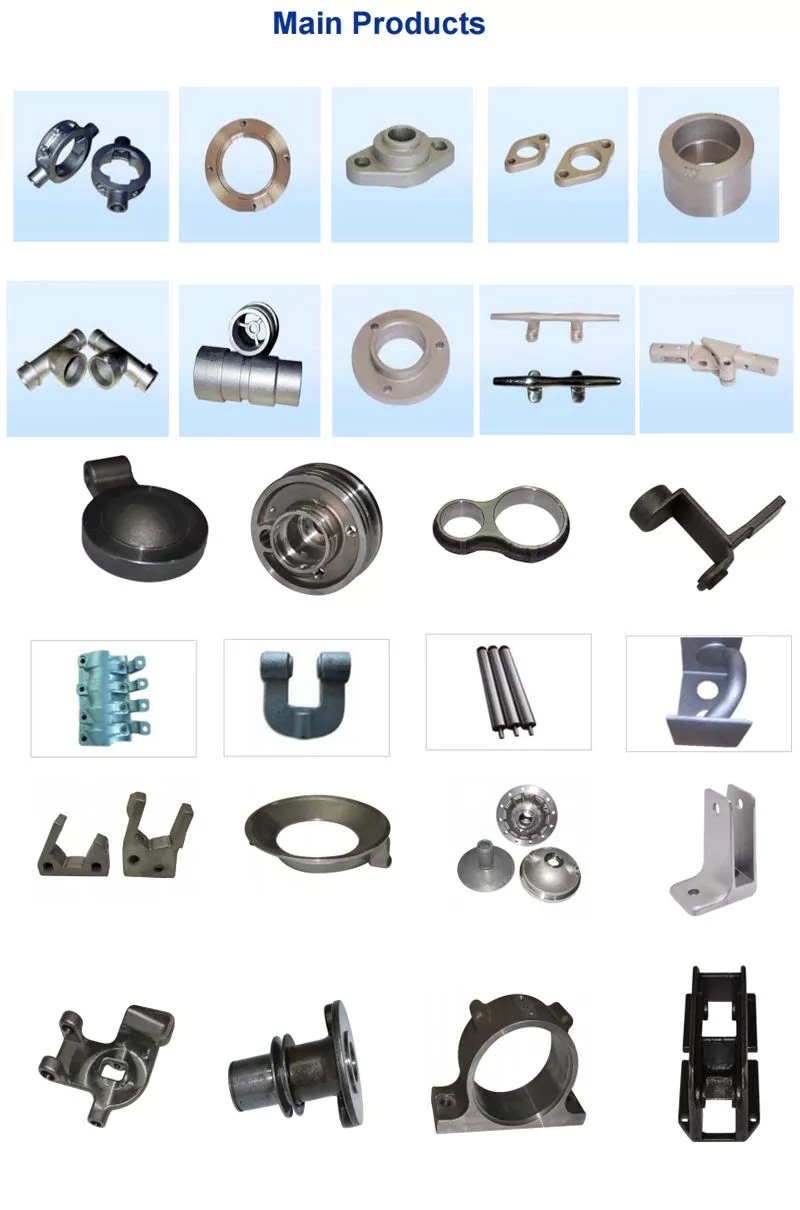
Stiffness of coupling
The calculation of stiffness of a spline coupling involves the measurement of its tooth engagement. In the following, we analyze the stiffness of a spline coupling with various types of teeth using two different methods. Direct inversion and blockwise inversion both reduce CPU time for stiffness calculation. However, they require evaluation submatrices. Here, we discuss the differences between these two methods.
The analytical model for spline couplings is derived in the second section. In the third section, the calculation process is explained in detail. We then validate this model against the FE method. Finally, we discuss the influence of stiffness nonlinearity on the rotor dynamics. Finally, we discuss the advantages and disadvantages of each method. We present a simple yet effective method for estimating the lateral stiffness of spline couplings.
The numerical calculation of the spline coupling is based on the semi-analytical spline load distribution model. This method involves refined contact grids and updating the compliance matrix at each iteration. Hence, it consumes significant computational time. Further, it is difficult to apply this method to the dynamic analysis of a rotor. This method has its own limitations and should be used only when the spline coupling is fully investigated.
The meshing force is the force generated by a misaligned spline coupling. It is related to the spline thickness and the transmitting torque of the rotor. The meshing force is also related to the dynamic vibration displacement. The result obtained from the meshing force analysis is given in Figures 7, 8, and 9.
The analysis presented in this paper aims to investigate the stiffness of spline couplings with a misaligned spline. Although the results of previous studies were accurate, some issues remained. For example, the misalignment of the spline may cause contact damages. The aim of this article is to investigate the problems associated with misaligned spline couplings and propose an analytical approach for estimating the contact pressure in a spline connection. We also compare our results to those obtained by pure numerical approaches.
Misalignment
To determine the centering force, the effective pressure angle must be known. Using the effective pressure angle, the centering force is calculated based on the maximum axial and radial loads and updated Dudley misalignment factors. The centering force is the maximum axial force that can be transmitted by friction. Several published misalignment factors are also included in the calculation. A new method is presented in this paper that considers the cam effect in the normal force.
In this new method, the stiffness along the spline joint can be integrated to obtain a global stiffness that is applicable to torsional vibration analysis. The stiffness of bearings can also be calculated at given levels of misalignment, allowing for accurate estimation of bearing dimensions. It is advisable to check the stiffness of bearings at all times to ensure that they are properly sized and aligned.
A misalignment in a spline coupling can result in wear or even failure. This is caused by an incorrectly aligned pitch profile. This problem is often overlooked, as the teeth are in contact throughout the involute profile. This causes the load to not be evenly distributed along the contact line. Consequently, it is important to consider the effect of misalignment on the contact force on the teeth of the spline coupling.
The centre of the male spline in Figure 2 is superposed on the female spline. The alignment meshing distances are also identical. Hence, the meshing force curves will change according to the dynamic vibration displacement. It is necessary to know the parameters of a spline coupling before implementing it. In this paper, the model for misalignment is presented for spline couplings and the related parameters.
Using a self-made spline coupling test rig, the effects of misalignment on a spline coupling are studied. In contrast to the typical spline coupling, misalignment in a spline coupling causes fretting wear at a specific position on the tooth surface. This is a leading cause of failure in these types of couplings.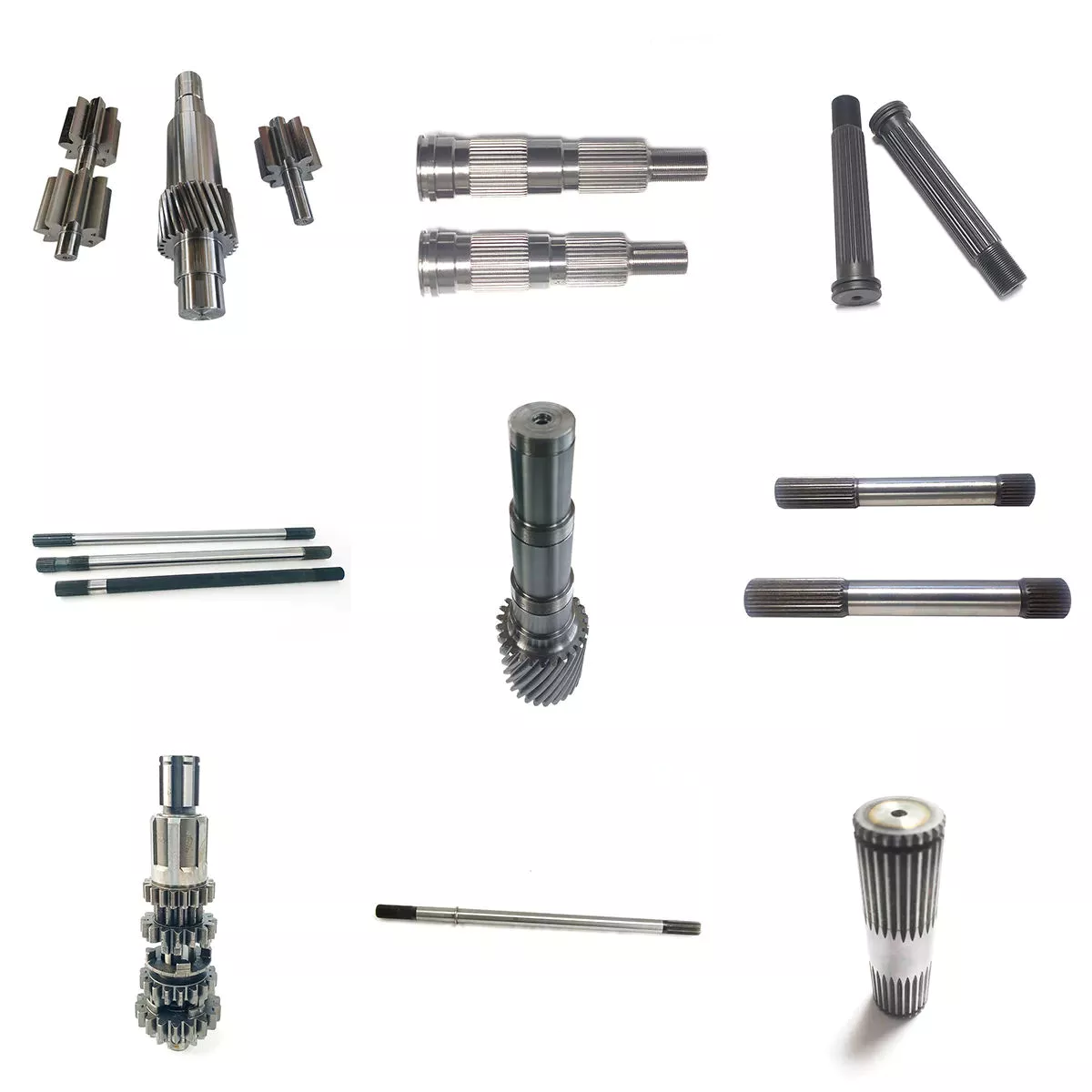
Wear and fatigue failure
The failure of a spline coupling due to wear and fatigue is determined by the first occurrence of tooth wear and shaft misalignment. Standard design methods do not account for wear damage and assess the fatigue life with big approximations. Experimental investigations have been conducted to assess wear and fatigue damage in spline couplings. The tests were conducted on a dedicated test rig and special device connected to a standard fatigue machine. The working parameters such as torque, misalignment angle, and axial distance have been varied in order to measure fatigue damage. Over dimensioning has also been assessed.
During fatigue and wear, mechanical sliding takes place between the external and internal splines and results in catastrophic failure. The lack of literature on the wear and fatigue of spline couplings in aero-engines may be due to the lack of data on the coupling’s application. Wear and fatigue failure in splines depends on a number of factors, including the material pair, geometry, and lubrication conditions.
The analysis of spline couplings shows that over-dimensioning is common and leads to different damages in the system. Some of the major damages are wear, fretting, corrosion, and teeth fatigue. Noise problems have also been observed in industrial settings. However, it is difficult to evaluate the contact behavior of spline couplings, and numerical simulations are often hampered by the use of specific codes and the boundary element method.
The failure of a spline gear coupling was caused by fatigue, and the fracture initiated at the bottom corner radius of the keyway. The keyway and splines had been overloaded beyond their yield strength, and significant yielding was observed in the spline gear teeth. A fracture ring of non-standard alloy steel exhibited a sharp corner radius, which was a significant stress raiser.
Several components were studied to determine their life span. These components include the spline shaft, the sealing bolt, and the graphite ring. Each of these components has its own set of design parameters. However, there are similarities in the distributions of these components. Wear and fatigue failure of spline couplings can be attributed to a combination of the three factors. A failure mode is often defined as a non-linear distribution of stresses and strains.


editor by czh 2023-02-19
China OEM 4.5 Tons Forklift Parts Mechanical Transmission Gearbox Manual Shift Type with Best Sales
Product Description
Product Description
Mechanical Transmission Gearbox- QTJD45
Suitable for 4.5tons diesel forklift.
Brand:TCM,HELI,DOOSAN,HANGCHA,TAILIF…..
Characteristics:
1)Sliding (Inertial lock-ring) synchronizer makes the shifting more flexible and has less impact.
2)Because of extensible spindle design, there is no need to disassemble the gearbox when replace the discs.
3)The transmission has good bearing capacity, high transmission efficiency and stable operation.
Product Parameters
| Transmission Model | QTJD45 | |
| Match Engine Rated Power Kw | 44-68 | |
| Match Engine Rotating Speed r/min | 2200~2600 | |
| Match Engine Max Output Moment N.m | 195-340 | |
| Transmission Ratio | Forward 1(F1) | 7.36 |
| Forward 11 (F2) | 2.91 | |
| Backward 1 (R1) | 7.36 | |
| Backward 11 (R2) | 2.91 | |
| Synchronizer Pattern | Inertial lock-ring | |
| Shift Pattern | Manual Shift | |
| Input Shaft Rotating Speed | Clockwise( from input ) | |
| Lubricating Oil | GL-5 80W-90 vehicle gear oil | |
| Oil Capacity | 11-12 | |
| Working Oil TemperatureºC | 60~80 | |
| Top Working Oil TemperatureºC | 120(no more than 5 mins) | |
| Net Weight kg | 197 | |
Our company is specialized in the production of engine gears, gears of transmission, and gears used for various construction machinery and vehicles. Our company owns various kinds of high-grade, precision and advanced machining equipment (photos) which can economically and efficiently machine and produce transmission parts like spur gear, helical gear, multi-link gear, internal gear, small-taper teeth, crowned teeth, sharp and thin teeth, worm gear and chain gear.
Gear machining range:
1.Maximum modulus: 8
2.Maximum outer diameter: φ500
3.Accuracy grade:4 Grade GB/T 10095-2008
Our Advantages
Company Profile
HangZhou Tsingleader Industry Co., Ltd. is located in the beautiful HangZhou city. We specialize in the production of trailer parts, axle and transmission of engineering machinery and special engineering and agricultural machinery.
Over the past years, Tsingleader Industry has invested 4 manufacturing plants in China. Following the principle of “quality assurance, abiding by the contract, reciprocity, mutual benefit and first-class services”, we have won the trust from our clients both at home and abroad.
Our annual sales amount reaches USD 5 million and our products have been exported to North and South America, Europe ,Africa,South Asia and the Middle East.
We sincerely hope to become your earnest business partner and your contact will be warmly welcomed.
What Are the Advantages of a Splined Shaft?
If you are looking for the right splined shaft for your machine, you should know a few important things. First, what type of material should be used? Stainless steel is usually the most appropriate choice, because of its ability to offer low noise and fatigue failure. Secondly, it can be machined using a slotting or shaping machine. Lastly, it will ensure smooth motion. So, what are the advantages of a splined shaft?
Stainless steel is the best material for splined shafts
When choosing a splined shaft, you should consider its hardness, quality, and finish. Stainless steel has superior corrosion and wear resistance. Carbon steel is another good material for splined shafts. Carbon steel has a shallow carbon content (about 1.7%), which makes it more malleable and helps ensure smooth motion. But if you’re not willing to spend the money on stainless steel, consider other options.
There are 2 main types of splines: parallel splines and crowned splines. Involute splines have parallel grooves and allow linear and rotary motion. Helical splines have involute teeth and are oriented at an angle. This type allows for many teeth on the shaft and minimizes the stress concentration in the stationary joint.
Large evenly spaced splines are widely used in hydraulic systems, drivetrains, and machine tools. They are typically made from carbon steel (CR10) and stainless steel (AISI 304). This material is durable and meets the requirements of ISO 14-B, formerly DIN 5463-B. Splined shafts are typically made of stainless steel or C45 steel, though there are many other materials available.
Stainless steel is the best material for a splined shaft. This metal is also incredibly affordable. In most cases, stainless steel is the best choice for these shafts because it offers the best corrosion resistance. There are many different types of splined shafts, and each 1 is suited for a particular application. There are also many different types of stainless steel, so choose stainless steel if you want the best quality.
For those looking for high-quality splined shafts, CZPT Spline Shafts offer many benefits. They can reduce costs, improve positional accuracy, and reduce friction. With the CZPT TFE coating, splined shafts can reduce energy and heat buildup, and extend the life of your products. And, they’re easy to install – all you need to do is install them.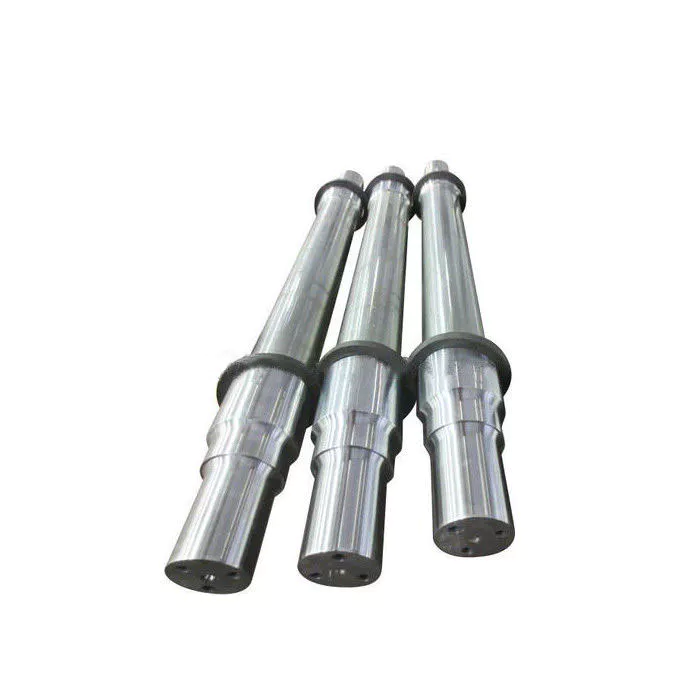
They provide low noise, low wear and fatigue failure
The splines in a splined shaft are composed of 2 main parts: the spline root fillet and the spline relief. The spline root fillet is the most critical part, because fatigue failure starts there and propagates to the relief. The spline relief is more susceptible to fatigue failure because of its involute tooth shape, which offers a lower stress to the shaft and has a smaller area of contact.
The fatigue life of splined shafts is determined by measuring the S-N curve. This is also known as the Wohler curve, and it is the relationship between stress amplitude and number of cycles. It depends on the material, geometry and way of loading. It can be obtained from a physical test on a uniform material specimen under a constant amplitude load. Approximations for low-alloy steel parts can be made using a lower-alloy steel material.
Splined shafts provide low noise, minimal wear and fatigue failure. However, some mechanical transmission elements need to be removed from the shaft during assembly and manufacturing processes. The shafts must still be capable of relative axial movement for functional purposes. As such, good spline joints are essential to high-quality torque transmission, minimal backlash, and low noise. The major failure modes of spline shafts include fretting corrosion, tooth breakage, and fatigue failure.
The outer disc carrier spline is susceptible to tensile stress and fatigue failure. High customer demands for low noise and low wear and fatigue failure makes splined shafts an excellent choice. A fractured spline gear coupling was received for analysis. It was installed near the top of a filter shaft and inserted into the gearbox motor. The service history was unknown. The fractured spline gear coupling had longitudinally cracked and arrested at the termination of the spline gear teeth. The spline gear teeth also exhibited wear and deformation.
A new spline coupling method detects fault propagation in hollow cylindrical splined shafts. A spline coupling is fabricated using an AE method with the spline section unrolled into a metal plate of the same thickness as the cylinder wall. In addition, the spline coupling is misaligned, which puts significant concentration on the spline teeth. This further accelerates the rate of fretting fatigue and wear.
A spline joint should be lubricated after 25 hours of operation. Frequent lubrication can increase maintenance costs and cause downtime. Moreover, the lubricant may retain abrasive particles at the interfaces. In some cases, lubricants can even cause misalignment, leading to premature failure. So, the lubrication of a spline coupling is vital in ensuring proper functioning of the shaft.
The design of a spline coupling can be optimized to enhance its wear resistance and reliability. Surface treatments, loads, and rotation affect the friction properties of a spline coupling. In addition, a finite element method was developed to predict wear of a floating spline coupling. This method is feasible and provides a reliable basis for predicting the wear and fatigue life of a spline coupling.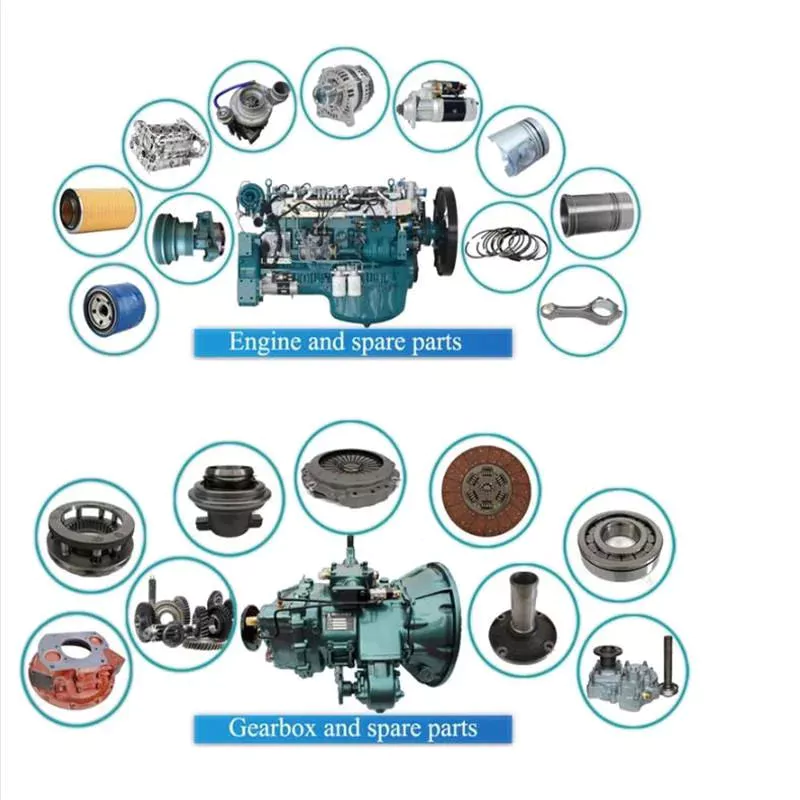
They can be machined using a slotting or shaping machine
Machines can be used to shape splined shafts in a variety of industries. They are useful in many applications, including gearboxes, braking systems, and axles. A slotted shaft can be manipulated in several ways, including hobbling, broaching, and slotting. In addition to shaping, splines are also useful in reducing bar diameter.
When using a slotting or shaping machine, the workpiece is held against a pedestal that has a uniform thickness. The machine is equipped with a stand column and limiting column (Figure 1), each positioned perpendicular to the upper surface of the pedestal. The limiting column axis is located on the same line as the stand column. During the slotting or shaping process, the tool is fed in and out until the desired space is achieved.
One process involves cutting splines into a shaft. Straddle milling, spline shaping, and spline cutting are 2 common processes used to create splined shafts. Straddle milling involves a fixed indexing fixture that holds the shaft steady, while rotating milling cutters cut the groove in the length of the shaft. Several passes are required to ensure uniformity throughout the spline.
Splines are a type of gear. The ridges or teeth on the drive shaft mesh with grooves in the mating piece. A splined shaft allows the transmission of torque to a mate piece while maximizing the power transfer. Splines are used in heavy vehicles, construction, agriculture, and massive earthmoving machinery. Splines are used in virtually every type of rotary motion, from axles to transmission systems. They also offer better fatigue life and reliability.
Slotting or shaping machines can also be used to shape splined shafts. Slotting machines are often used to machine splined shafts, because it is easier to make them with these machines. Using a slotting or shaping machine can result in splined shafts of different sizes. It is important to follow a set of spline standards to ensure your parts are manufactured to the highest standards.
A milling machine is another option for producing splined shafts. A spline shaft can be set up between 2 centers in an indexing fixture. Two side milling cutters are mounted on an arbor and a spacer and shims are inserted between them. The arbor and cutters are then mounted to a milling machine spindle. To make sure the cutters center themselves over the splined shaft, an adjustment must be made to the spindle of the machine.
The machining process is very different for internal and external splines. External splines can be broached, shaped, milled, or hobbed, while internal splines cannot. These machines use hard alloy, but they are not as good for internal splines. A machine with a slotting mechanism is necessary for these operations.


China manufacturer Forklift Mechanical Transmission Gearbox for 4 Tons-5 Tons Diesel Forklift with Best Sales
Product Description
Product Description
Mechanical Transmission Gearbox- QTJH400 / QTJH470
Suitable for 4tons – 5 tons diesel forklift.
Brand:TCM,HELI,DOOSAN,HANGCHA,TAILIF…..
Characteristics:
1)Sliding (Inertial lock-ring) synchronizer makes the shifting more flexible and has less impact.
2)Because of extensible spindle design, there is no need to disassemble the gearbox when replace the discs.
3)The transmission has good bearing capacity, high transmission efficiency and stable operation.
Product Parameters
| Transmission Model | QTJH400 | QTJH470 |
| Engine Rated Power(kw) | 45~50 | 45~74 |
| Engine Rated Rotating Speed (r/min) | 1800~2400 | 2200~2650 |
| Engine Max Torque(N.m) | 193~371 | 193~371 |
| Transmission Gear Ratio | F1=9.28 F2=4.804 F3=3.007 |
F1=9.333 F2=4.973 F3=2.823 |
| R1=8.767 R2=4.232 |
R1=8.487 R2=4.68 |
Our company is specialized in the production of engine gears, gears of transmission, and gears used for various construction machinery and vehicles. Our company owns various kinds of high-grade, precision and advanced machining equipment (photos) which can economically and efficiently machine and produce transmission parts like spur gear, helical gear, multi-link gear, internal gear, small-taper teeth, crowned teeth, sharp and thin teeth, worm gear and chain gear.
Gear machining range:
1.Maximum modulus: 8
2.Maximum outer diameter: φ500
3.Accuracy grade:4 Grade GB/T 10095-2008
Our Advantages
Company Profile
HangZhou Tsingleader Industry Co., Ltd. is located in the beautiful HangZhou city. We specialize in the production of trailer parts, axle and transmission of engineering machinery and special engineering and agricultural machinery.
Over the past years, Tsingleader Industry has invested 4 manufacturing plants in China. Following the principle of “quality assurance, abiding by the contract, reciprocity, mutual benefit and first-class services”, we have won the trust from our clients both at home and abroad.
Our annual sales amount reaches USD 5 million and our products have been exported to North and South America, Europe ,Africa,South Asia and the Middle East.
We sincerely hope to become your earnest business partner and your contact will be warmly welcomed.
Calculating the Deflection of a Worm Shaft
In this article, we’ll discuss how to calculate the deflection of a worm gear’s worm shaft. We’ll also discuss the characteristics of a worm gear, including its tooth forces. And we’ll cover the important characteristics of a worm gear. Read on to learn more! Here are some things to consider before purchasing a worm gear. We hope you enjoy learning! After reading this article, you’ll be well-equipped to choose a worm gear to match your needs.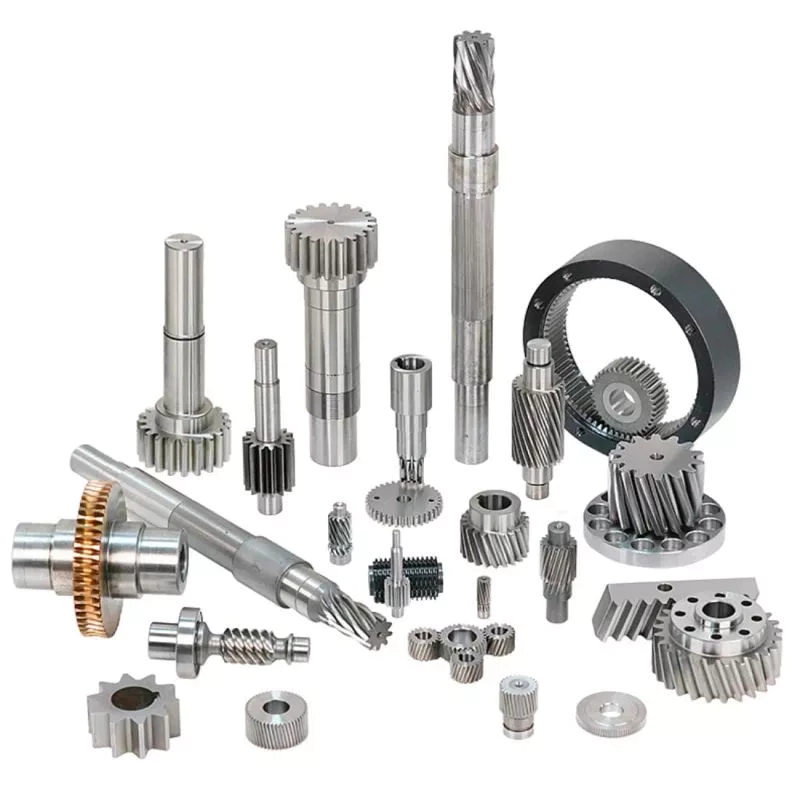
Calculation of worm shaft deflection
The main goal of the calculations is to determine the deflection of a worm. Worms are used to turn gears and mechanical devices. This type of transmission uses a worm. The worm diameter and the number of teeth are inputted into the calculation gradually. Then, a table with proper solutions is shown on the screen. After completing the table, you can then move on to the main calculation. You can change the strength parameters as well.
The maximum worm shaft deflection is calculated using the finite element method (FEM). The model has many parameters, including the size of the elements and boundary conditions. The results from these simulations are compared to the corresponding analytical values to calculate the maximum deflection. The result is a table that displays the maximum worm shaft deflection. The tables can be downloaded below. You can also find more information about the different deflection formulas and their applications.
The calculation method used by DIN EN 10084 is based on the hardened cemented worm of 16MnCr5. Then, you can use DIN EN 10084 (CuSn12Ni2-C-GZ) and DIN EN 1982 (CuAl10Fe5Ne5-C-GZ). Then, you can enter the worm face width, either manually or using the auto-suggest option.
Common methods for the calculation of worm shaft deflection provide a good approximation of deflection but do not account for geometric modifications on the worm. While Norgauer’s 2021 approach addresses these issues, it fails to account for the helical winding of the worm teeth and overestimates the stiffening effect of gearing. More sophisticated approaches are required for the efficient design of thin worm shafts.
Worm gears have a low noise and vibration compared to other types of mechanical devices. However, worm gears are often limited by the amount of wear that occurs on the softer worm wheel. Worm shaft deflection is a significant influencing factor for noise and wear. The calculation method for worm gear deflection is available in ISO/TR 14521, DIN 3996, and AGMA 6022.
The worm gear can be designed with a precise transmission ratio. The calculation involves dividing the transmission ratio between more stages in a gearbox. Power transmission input parameters affect the gearing properties, as well as the material of the worm/gear. To achieve a better efficiency, the worm/gear material should match the conditions that are to be experienced. The worm gear can be a self-locking transmission.
The worm gearbox contains several machine elements. The main contributors to the total power loss are the axial loads and bearing losses on the worm shaft. Hence, different bearing configurations are studied. One type includes locating/non-locating bearing arrangements. The other is tapered roller bearings. The worm gear drives are considered when locating versus non-locating bearings. The analysis of worm gear drives is also an investigation of the X-arrangement and four-point contact bearings.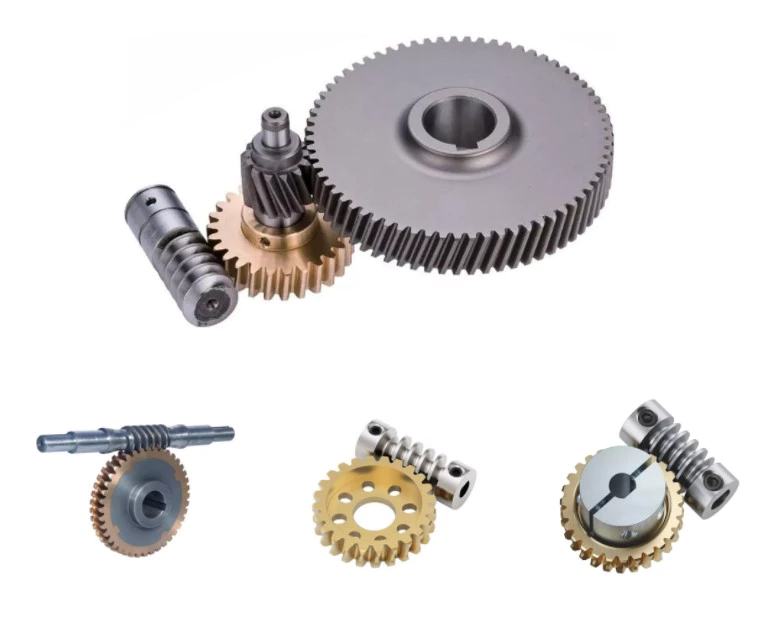
Influence of tooth forces on bending stiffness of a worm gear
The bending stiffness of a worm gear is dependent on tooth forces. Tooth forces increase as the power density increases, but this also leads to increased worm shaft deflection. The resulting deflection can affect efficiency, wear load capacity, and NVH behavior. Continuous improvements in bronze materials, lubricants, and manufacturing quality have enabled worm gear manufacturers to produce increasingly high power densities.
Standardized calculation methods take into account the supporting effect of the toothing on the worm shaft. However, overhung worm gears are not included in the calculation. In addition, the toothing area is not taken into account unless the shaft is designed next to the worm gear. Similarly, the root diameter is treated as the equivalent bending diameter, but this ignores the supporting effect of the worm toothing.
A generalized formula is provided to estimate the STE contribution to vibratory excitation. The results are applicable to any gear with a meshing pattern. It is recommended that engineers test different meshing methods to obtain more accurate results. One way to test tooth-meshing surfaces is to use a finite element stress and mesh subprogram. This software will measure tooth-bending stresses under dynamic loads.
The effect of tooth-brushing and lubricant on bending stiffness can be achieved by increasing the pressure angle of the worm pair. This can reduce tooth bending stresses in the worm gear. A further method is to add a load-loaded tooth-contact analysis (CCTA). This is also used to analyze mismatched ZC1 worm drive. The results obtained with the technique have been widely applied to various types of gearing.
In this study, we found that the ring gear’s bending stiffness is highly influenced by the teeth. The chamfered root of the ring gear is larger than the slot width. Thus, the ring gear’s bending stiffness varies with its tooth width, which increases with the ring wall thickness. Furthermore, a variation in the ring wall thickness of the worm gear causes a greater deviation from the design specification.
To understand the impact of the teeth on the bending stiffness of a worm gear, it is important to know the root shape. Involute teeth are susceptible to bending stress and can break under extreme conditions. A tooth-breakage analysis can control this by determining the root shape and the bending stiffness. The optimization of the root shape directly on the final gear minimizes the bending stress in the involute teeth.
The influence of tooth forces on the bending stiffness of a worm gear was investigated using the CZPT Spiral Bevel Gear Test Facility. In this study, multiple teeth of a spiral bevel pinion were instrumented with strain gages and tested at speeds ranging from static to 14400 RPM. The tests were performed with power levels as high as 540 kW. The results obtained were compared with the analysis of a three-dimensional finite element model.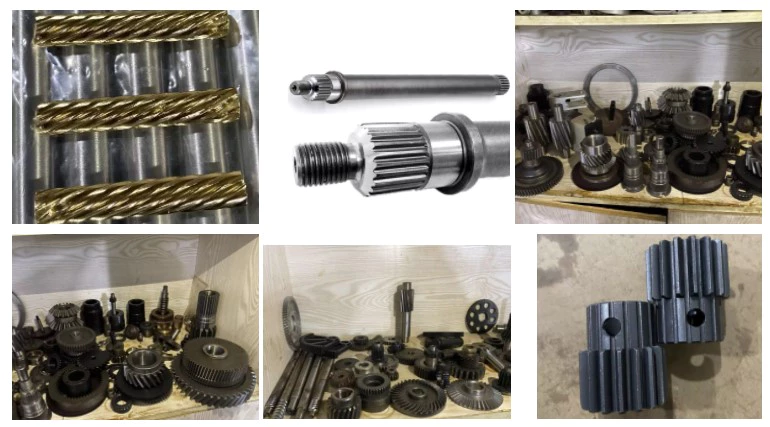
Characteristics of worm gears
Worm gears are unique types of gears. They feature a variety of characteristics and applications. This article will examine the characteristics and benefits of worm gears. Then, we’ll examine the common applications of worm gears. Let’s take a look! Before we dive in to worm gears, let’s review their capabilities. Hopefully, you’ll see how versatile these gears are.
A worm gear can achieve massive reduction ratios with little effort. By adding circumference to the wheel, the worm can greatly increase its torque and decrease its speed. Conventional gearsets require multiple reductions to achieve the same reduction ratio. Worm gears have fewer moving parts, so there are fewer places for failure. However, they can’t reverse the direction of power. This is because the friction between the worm and wheel makes it impossible to move the worm backwards.
Worm gears are widely used in elevators, hoists, and lifts. They are particularly useful in applications where stopping speed is critical. They can be incorporated with smaller brakes to ensure safety, but shouldn’t be relied upon as a primary braking system. Generally, they are self-locking, so they are a good choice for many applications. They also have many benefits, including increased efficiency and safety.
Worm gears are designed to achieve a specific reduction ratio. They are typically arranged between the input and output shafts of a motor and a load. The 2 shafts are often positioned at an angle that ensures proper alignment. Worm gear gears have a center spacing of a frame size. The center spacing of the gear and worm shaft determines the axial pitch. For instance, if the gearsets are set at a radial distance, a smaller outer diameter is necessary.
Worm gears’ sliding contact reduces efficiency. But it also ensures quiet operation. The sliding action limits the efficiency of worm gears to 30% to 50%. A few techniques are introduced herein to minimize friction and to produce good entrance and exit gaps. You’ll soon see why they’re such a versatile choice for your needs! So, if you’re considering purchasing a worm gear, make sure you read this article to learn more about its characteristics!
An embodiment of a worm gear is described in FIGS. 19 and 20. An alternate embodiment of the system uses a single motor and a single worm 153. The worm 153 turns a gear which drives an arm 152. The arm 152, in turn, moves the lens/mirr assembly 10 by varying the elevation angle. The motor control unit 114 then tracks the elevation angle of the lens/mirr assembly 10 in relation to the reference position.
The worm wheel and worm are both made of metal. However, the brass worm and wheel are made of brass, which is a yellow metal. Their lubricant selections are more flexible, but they’re limited by additive restrictions due to their yellow metal. Plastic on metal worm gears are generally found in light load applications. The lubricant used depends on the type of plastic, as many types of plastics react to hydrocarbons found in regular lubricant. For this reason, you need a non-reactive lubricant.


China Best Sales CZPT Truck Gearbox Transmission Parts Wg2210040041 Spindle Gear for Sino CZPT Parts near me supplier
Product Description
Xihu (West Lake) Dis.feng truck gearbox transmission parts WGSpindle gear for Sino CZPT Parts
Product Parameters
| Number | WG |
| Name |
Spindle gear |
| Specification |
Standard |
| Place of origin |
HangZhou China |
| Packing |
As your request |
| Delivery Port |
Any Port |
| Payment Terms |
L/C,T/T,Western Union, Paypal and others |
| Delivery Time |
In 7-15 days |
Detailed Photos
Packaging & Shipping
Our Advantages
HangZhou Sero Import&Export Co.,Ltd. is located in HangZhou city which is a comprehensive trading company that manages all heavy duty truck and light truck auto parts.
We are the authorized dealer of CZPT , deal all series of CZPT models (HOWO,A7,T5G,T7H,70 mining dump truck and etc.) , also engaged in SHACMAN,FOTON,FAW,XIHU (WEST LAKE) DIS.,XIHU (WEST LAKE) DIS.FENG,JAC,XIHU (WEST LAKE) DIS.N heavy duty and light trucks , we provide original and after the market and quality OEM parts .
Our products have been exported to various countries in the world with high quality and competitive price and are well recognized both domestic and abroad.We sincerely promises to all customers and partners to provide excellent products, work together for common development.
Struggle, integrity, thanksgiving, quality is our constant pursuit.
FAQ
1. Q: Are you a manufacturer or trading company?A: We are manufacturer.
2. Q: What about your products quality? A:”Quality is priority. ” We always attach great importance to quality controlling from the very beginning.
3.Q:What payment do you accept? A: T/T, L/C, Trade assurance;
The Benefits of Spline Couplings for Disc Brake Mounting Interfaces
Spline couplings are commonly used for securing disc brake mounting interfaces. Spline couplings are often used in high-performance vehicles, aeronautics, and many other applications. However, the mechanical benefits of splines are not immediately obvious. Listed below are the benefits of spline couplings. We’ll discuss what these advantages mean for you. Read on to discover how these couplings work.
Disc brake mounting interfaces are splined
There are 2 common disc brake mounting interfaces – splined and six-bolt. Splined rotors fit on splined hubs; six-bolt rotors will need an adapter to fit on six-bolt hubs. The six-bolt method is easier to maintain and may be preferred by many cyclists. If you’re thinking of installing a disc brake system, it is important to know how to choose the right splined and center lock interfaces.
Aerospace applications
The splines used for spline coupling in aircraft are highly complex. While some previous researches have addressed the design of splines, few publications have tackled the problem of misaligned spline coupling. Nevertheless, the accurate results we obtained were obtained using dedicated simulation tools, which are not commercially available. Nevertheless, such tools can provide a useful reference for our approach. It would be beneficial if designers could use simple tools for evaluating contact pressure peaks. Our analytical approach makes it possible to find answers to such questions.
The design of a spline coupling for aerospace applications must be accurate to minimize weight and prevent failure mechanisms. In addition to weight reduction, it is necessary to minimize fretting fatigue. The pressure distribution on the spline coupling teeth is a significant factor in determining its fretting fatigue. Therefore, we use analytical and experimental methods to examine the contact pressure distribution in the axial direction of spline couplings.
The teeth of a spline coupling can be categorized by the type of engagement they provide. This study investigates the position of resultant contact forces in the teeth of a spline coupling when applied to pitch diameter. Using FEM models, numerical results are generated for nominal and parallel offset misalignments. The axial tooth profile determines the behavior of the coupling component and its ability to resist wear. Angular misalignment is also a concern, causing misalignment.
In order to assess wear damage of a spline coupling, we must take into consideration the impact of fretting on the components. This wear is caused by relative motion between the teeth that engage them. The misalignment may be caused by vibrations, cyclical tooth deflection, or angular misalignment. The result of this analysis may help designers improve their spline coupling designs and develop improved performance.
CZPT polyimide, an abrasion-resistant polymer, is a popular choice for high-temperature spline couplings. This material reduces friction and wear, provides a low friction surface, and has a low wear rate. Furthermore, it offers up to 50 times the life of metal on metal spline connections. For these reasons, it is important to choose the right material for your spline coupling.
High-performance vehicles
A spline coupler is a device used to connect splined shafts. A typical spline coupler resembles a short pipe with splines on either end. There are 2 basic types of spline coupling: single and dual spline. One type attaches to a drive shaft, while the other attaches to the gearbox. While spline couplings are typically used in racing, they’re also used for performance problems.
The key challenge in spline couplings is to determine the optimal dimension of spline joints. This is difficult because no commercial codes allow the simulation of misaligned joints, which can destroy components. This article presents analytical approaches to estimating contact pressures in spline connections. The results are comparable with numerical approaches but require special codes to accurately model the coupling operation. This research highlights several important issues and aims to make the application of spline couplings in high-performance vehicles easier.
The stiffness of spline assemblies can be calculated using tooth-like structures. Such splines can be incorporated into the spline joint to produce global stiffness for torsional vibration analysis. Bearing reactions are calculated for a certain level of misalignment. This information can be used to design bearing dimensions and correct misalignment. There are 3 types of spline couplings.
Major diameter fit splines are made with tightly controlled outside diameters. This close fit provides concentricity transfer from the male to the female spline. The teeth of the male spline usually have chamfered tips and clearance with fillet radii. These splines are often manufactured from billet steel or aluminum. These materials are renowned for their strength and uniform grain created by the forging process. ANSI and DIN design manuals define classes of fit.
Disc brake mounting interfaces
A spline coupling for disc brake mounting interfaces is a type of hub-to-brake-disc mount. It is a highly durable coupling mechanism that reduces heat transfer from the disc to the axle hub. The mounting arrangement also isolates the axle hub from direct contact with the disc. It is also designed to minimize the amount of vehicle downtime and maintenance required to maintain proper alignment.
Disc brakes typically have substantial metal-to-metal contact with axle hub splines. The discs are held in place on the hub by intermediate inserts. This metal-to-metal contact also aids in the transfer of brake heat from the brake disc to the axle hub. Spline coupling for disc brake mounting interfaces comprises a mounting ring that is either a threaded or non-threaded spline.
During drag brake experiments, perforated friction blocks filled with various additive materials are introduced. The materials included include Cu-based powder metallurgy material, a composite material, and a Mn-Cu damping alloy. The filling material affects the braking interface’s wear behavior and friction-induced vibration characteristics. Different filling materials produce different types of wear debris and have different wear evolutions. They also differ in their surface morphology.
Disc brake couplings are usually made of 2 different types. The plain and HD versions are interchangeable. The plain version is the simplest to install, while the HD version has multiple components. The two-piece couplings are often installed at the same time, but with different mounting interfaces. You should make sure to purchase the appropriate coupling for your vehicle. These interfaces are a vital component of your vehicle and must be installed correctly for proper operation.
Disc brakes use disc-to-hub elements that help locate the forces and displace them to the rim. These elements are typically made of stainless steel, which increases the cost of manufacturing the disc brake mounting interface. Despite their benefits, however, the high braking force loads they endure are hard on the materials. Moreover, excessive heat transferred to the intermediate elements can adversely affect the fatigue life and long-term strength of the brake system.


China Standard speed reducers wpa worm gear box reducer wpa worm gearbox speed reducer worm gearbox small gear transmission with motor drive kw near me manufacturer
Warranty: 3 many years
Applicable Industries: Accommodations, Garment Stores, Constructing Materials Shops, Manufacturing Plant, Machinery Mend Stores, Meals & Beverage Manufacturing facility, Farms, Restaurant, Residence Use, Retail, Food Shop, Printing Stores, Design works , Strength & Mining, Foods & Beverage Stores, Advertising Company
Personalized help: OEM, ODM, OBM
Gearing Arrangement: Worm
Output Torque: up to 5000Nm
Enter Velocity: 750rpm -2000rpm
Output Pace: ten-500rpm
Shade: Customer Request
Housing Content: Forged Iron
Shaft: worm shaft
Heat treatment method: Quenching
Bearing content: ZWZ
Packaging Particulars: Standard export Packing(Carton Blanket+ wood box)
SpecificationWPX mini worm gear reducer double enter worm travel gearbox worm gear speed reducer companies transmission maritime gearbox
1.Widely employed in light-weight market, excellent resistance to putting on, with higher precision in proportions, reduce sound, innovative centric
running castings2. The housing is of strong hardness, compact structure3. Secure transmission, low vibration, large ratio, canbe matched with numerous equipment
1.Housing:iron cast
two. low noise(<50DB) 3.Product:WPA forty-250,Ratio:10 to 60 4.Successful and risk-free operating5.ISO9001,Manufacturing unit price,OEM
six.Engineering Info:Type:gearbox WPAProduct:WPA 40-250Ratio:1:ten,fifteen, Scorching Sale Sweet Steel Gear Box Keychain Gearbox Shifter Keychain twenty,twenty five,thirty,40,50,60Color:Blue/Silver Or On Client RequestMaterial:Housing: Die-Cast Iron castWorm Gear-Copper-ten-3#Worm-20CrMn Ti with carburizing and quenching, area harness is 56-62HRCShaft-chromium steel-45#Packing:Carton and Wooden SituationBearing:C&U BearingSeal: NAK SKFGuarantee:one Calendar yearEnter Power: .06KW,.09KW
Usages:Industrial Equipment: Foodstuff Things, Ceramics,CHEMICAL,Packing,Dyeing,Woodworking,Glass.
IEC Flange:
56B14, 63B14, 63B5, 63B5, 71B14,80B14 AND SO ON
Lubricant:Artificial&Mineral
Packaging & ShippingPacking Information : Standard carton/Pallet/Regular wooden circumstance
Shipping Specifics : 15-thirty working days upon payment
Firm Info
Trade Shows
Related Merchandise
Precision Planetary gearboxRobot RV gearbox pace reducerCustom produced Non-regular GearboxUDL Sequence VariatorPYZ Series Helical Tooth Shaft Mounted Reducer8000 Sequence Cycloidal ReducerSLT Series Spiral Bevel GearboxSLSWL Sequence Worm Screw JackSLP Sequence Planetary ReducerSLH/SLB Collection Substantial Electrical power ReducerNMRV Collection Worm ReducerBKM Sequence Helical-hypoid ReducerSLRC Sequence Helical ReducerSLSMR Sequence Shaft Mounted ReducerSLXG Sequence Shaft Mounted ReducerX/B Sequence Cycloidal ReducerSLR/SLF/SLK/SLS Collection Helical Reducer
Primary solution list: 16 sequence such as SLR/SLS/SLK/SLF series challenging tooth flank equipment reducer , SLRC series aluminium situation helical equipment reducers,SLHSLB collection higher energy velocity reducer, SLP series planetary speed reducer, X/B sequence cycloidal reducer, SLXG series shaft-mounted equipment box, SLSWL collection worm screw jack, SLT collection helical cone equipment box, altogether far more than ten,000 ratios, Personalized Big Electric Motor Automatic Transmission Maritime Gearbox a variety of specification make us at the head of domestic transmission business, broadly serve the mechanical transmission area of light & heavy market this sort of as: beer & beverage, mining device, food packing, textile printing, rubber & plastic materials, petrochemical market, jack-up transportation, pharmacy & method hides, environmental security tools.
FAQ1.Payment Time period: TT, L/C
2.Delivery time: about 30 days from receive payment.
3.We accept tailored products as for every your unique necessity.
four.Xihu (West Lake) Dis.lines for the Assortment:Usually we can decide on 1 device which is appropriate for you with some informations from you,these kinds of as ratio/motor velocity/mounting dimension/ out torque etc.
five.If the minimum order volume is in excessive of $10000, there are preferential.
Q1: What data should I explain to you to verify the product?
A:Model/Size, Transmission Ratio, Shaft directions & Get quantity.
Q2: What can i do if I never know which 1 I need?
A:Dont fret, Deliver as a lot details as you can, our staff will help you find the proper 1 you are seeking for.
Q3: What is your solution guarantee period?
A:We offer 1 calendar year warranty because the vessel departure date left China.
This fall: Are you buying and selling firm or manufacturer ?
A: We are manufacturing facility.
Q5: How extended is your supply time?
A: Generally it is 5-10 days if the merchandise are in stock. or it is 15-20 times if the items are not in inventory, it is in accordance to amount.
Q6: Do you offer samples ? is it free or further ?
A: Of course, we could offer the sample for totally free charge but do not pay the price of freight.
Q7: What is your terms of payment ?
A: Payment=1000USD, 30% T/T in advance ,stability prior to shippment.
If you have yet another issue, pls truly feel free to get in touch with us as underneath:
Get in touch with usClick on photograph to speak to us
Driveshaft framework and vibrations associated with it
The framework of the drive shaft is crucial to its efficiency and trustworthiness. Push shafts normally include claw couplings, rag joints and universal joints. Other push shafts have prismatic or splined joints. Discover about the different kinds of generate shafts and how they function. If you want to know the vibrations linked with them, read on. But very first, let us determine what a driveshaft is.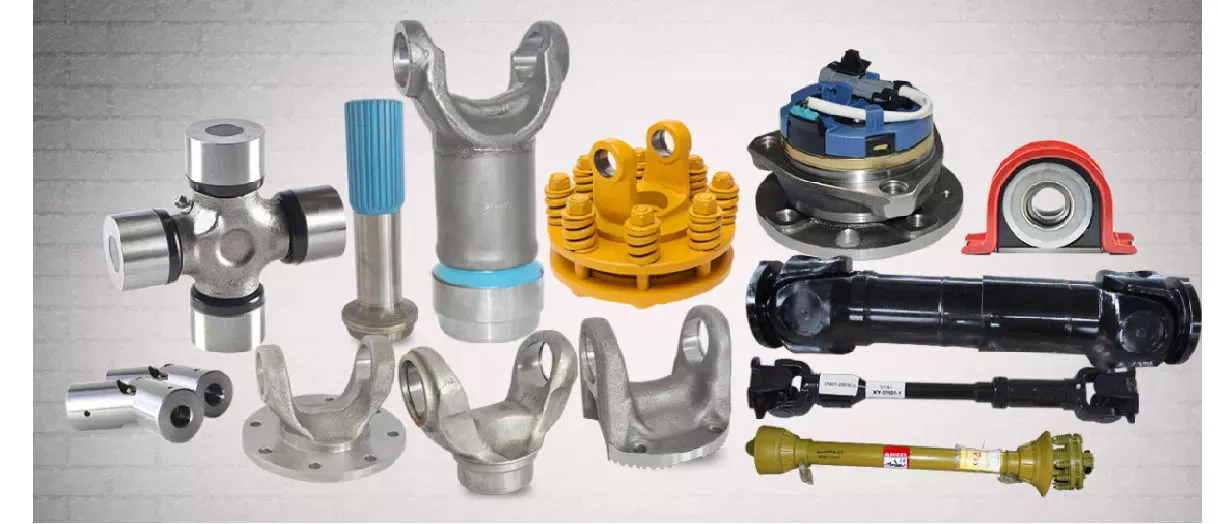
transmission shaft
As the demand on our vehicles proceeds to improve, so does the demand on our push programs. Greater CO2 emission requirements and stricter emission specifications boost the anxiety on the drive system although strengthening comfort and ease and shortening the turning radius. These and other adverse results can place significant pressure and dress in on factors, which can guide to driveshaft failure and improve motor vehicle protection risks. For that reason, the travel shaft should be inspected and replaced frequently.
Relying on your design, you may only need to have to exchange a single driveshaft. Nonetheless, the value to replace equally driveshafts ranges from $650 to $1850. Moreover, you may incur labor costs ranging from $140 to $250. The labor value will depend on your car product and its drivetrain kind. In common, nevertheless, the value of changing a driveshaft ranges from $470 to $1850.
Regionally, the automotive driveshaft industry can be divided into 4 significant markets: North The united states, Europe, Asia Pacific, and Rest of the World. North America is expected to dominate the market place, whilst Europe and Asia Pacific are expected to grow the fastest. In addition, the marketplace is expected to grow at the greatest price in the long term, pushed by economic growth in the Asia Pacific location. Additionally, most of the autos sold globally are created in these regions.
The most important function of the driveshaft is to transfer the electricity of the motor to helpful function. Push shafts are also recognized as propeller shafts and cardan shafts. In a car, a propshaft transfers torque from the engine, transmission, and differential to the entrance or rear wheels, or equally. Owing to the complexity of driveshaft assemblies, they are essential to vehicle basic safety. In addition to transmitting torque from the motor, they have to also compensate for deflection, angular modifications and size alterations.
type
Diverse kinds of travel shafts contain helical shafts, gear shafts, worm shafts, planetary shafts and synchronous shafts. Radial protruding pins on the head give a rotationally safe relationship. At minimum one bearing has a groove extending together its circumferential duration that permits the pin to move through the bearing. There can also be two flanges on each and every end of the shaft. Based on the application, the shaft can be put in in the most handy place to operate.
Propeller shafts are usually manufactured of substantial-quality steel with large certain power and modulus. Even so, they can also be made from sophisticated composite resources these kinds of as carbon fiber, Kevlar and fiberglass. An additional type of propeller shaft is made of thermoplastic polyamide, which is stiff and has a substantial energy-to-excess weight ratio. Equally drive shafts and screw shafts are utilised to travel cars, ships and motorcycles.
Sliding and tubular yokes are typical factors of generate shafts. By design and style, their angles should be equivalent or intersect to supply the proper angle of operation. Unless the functioning angles are equal, the shaft vibrates twice per revolution, causing torsional vibrations. The ideal way to steer clear of this is to make confident the two yokes are effectively aligned. Crucially, these components have the exact same working angle to ensure sleek electricity movement.
The sort of travel shaft may differ in accordance to the variety of motor. Some are geared, although other folks are non-geared. In some cases, the push shaft is set and the motor can rotate and steer. Alternatively, a adaptable shaft can be utilised to manage the velocity and direction of the travel. In some programs exactly where linear electricity transmission is not achievable, flexible shafts are a helpful option. For case in point, flexible shafts can be employed in moveable gadgets.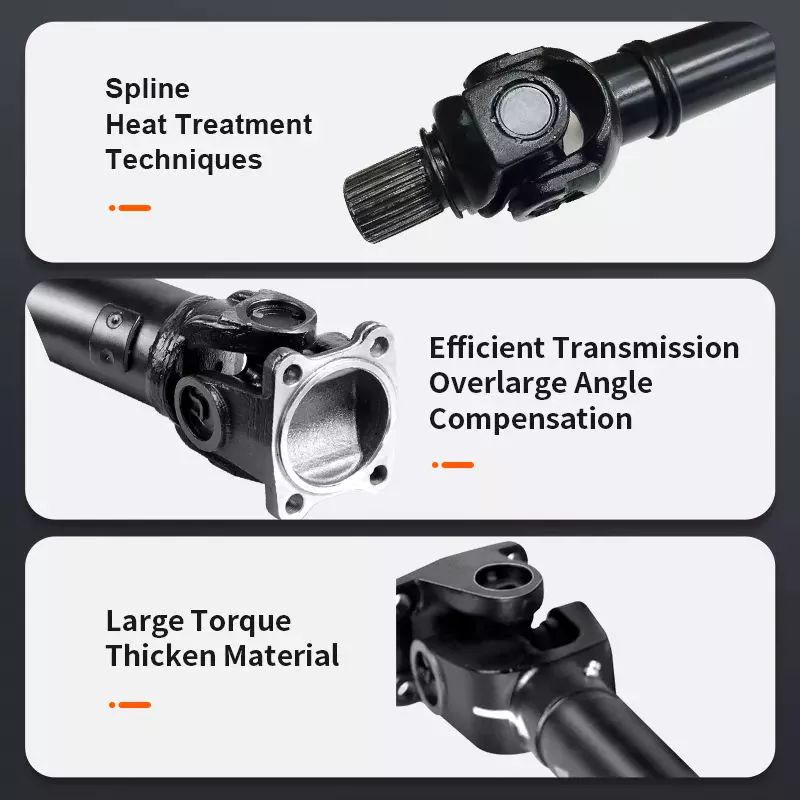
set up
The design of the travel shaft has several rewards in excess of bare metal. A shaft that is versatile in a number of directions is easier to keep than a shaft that is rigid in other instructions. The shaft human body and coupling flange can be made of diverse materials, and the flange can be made of a different material than the main shaft human body. For case in point, the coupling flange can be produced of metal. The main shaft human body is ideally flared on at minimum a single finish, and the at the very least one particular coupling flange contains a 1st usually frustoconical projection extending into the flared stop of the main shaft human body.
The normal stiffness of fiber-based mostly shafts is reached by the orientation of parallel fibers alongside the length of the shaft. Nevertheless, the bending stiffness of this shaft is diminished because of to the adjust in fiber orientation. Since the fibers keep on to travel in the identical route from the very first finish to the second conclude, the reinforcement that will increase the torsional stiffness of the shaft is not impacted. In distinction, a fiber-based mostly shaft is also versatile simply because it employs ribs that are around 90 degrees from the centerline of the shaft.
In addition to the helical ribs, the generate shaft 100 may possibly also have reinforcing elements. These reinforcing components preserve the structural integrity of the shaft. These reinforcing aspects are referred to as helical ribs. They have ribs on equally the outer and internal surfaces. This is to avoid shaft breakage. These elements can also be shaped to be versatile sufficient to accommodate some of the forces produced by the generate. Shafts can be created employing these approaches and produced into worm-like drive shafts.
vibration
The most typical trigger of push shaft vibration is poor installation. There are five typical kinds of driveshaft vibration, each and every related to set up parameters. To stop this from occurring, you must realize what causes these vibrations and how to resolve them. The most frequent types of vibration are detailed under. This report describes some widespread travel shaft vibration answers. It may also be helpful to think about the advice of a expert vibration technician for travel shaft vibration manage.
If you are not confident if the difficulty is the driveshaft or the engine, consider turning on the stereo. Thicker carpet kits can also mask vibrations. Nonetheless, you must contact an expert as soon as feasible. If vibration persists soon after vibration-connected repairs, the driveshaft needs to be changed. If the driveshaft is even now below warranty, you can mend it oneself.
CV joints are the most common cause of 3rd-purchase driveshaft vibration. If they are binding or fail, they need to have to be replaced. Alternatively, your CV joints might just be misaligned. If it is unfastened, you can check out the CV connector. An additional common trigger of drive shaft vibration is poor assembly. Improper alignment of the yokes on each ends of the shaft can trigger them to vibrate.
Incorrect trim peak can also cause driveshaft vibration. Proper trim top is essential to stop generate shaft wobble. Whether or not your vehicle is new or aged, you can carry out some basic fixes to minimize problems. 1 of these answers includes balancing the push shaft. Very first, use the hose clamps to attach the weights to it. Up coming, connect an ounce of excess weight to it and spin it. By performing this, you minimize the frequency of vibration.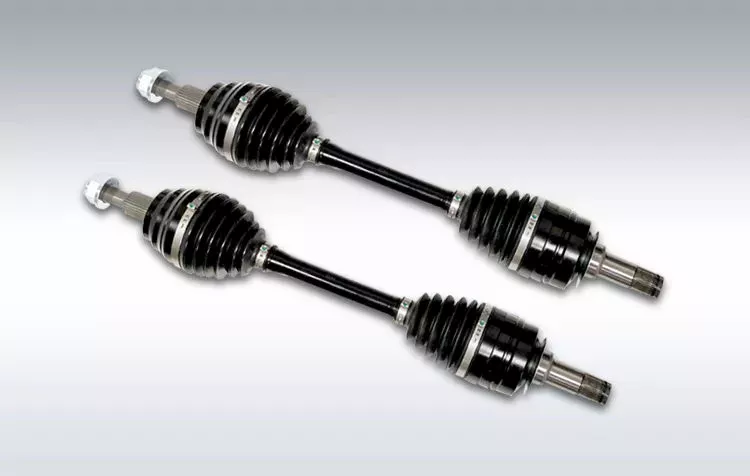
price
The international driveshaft market place is expected to exceed (xxx) million USD by 2028, expanding at a compound annual growth rate (CAGR) of XX%. Its soaring growth can be attributed to many aspects, such as growing urbanization and R&D investments by top market gamers. The report also includes an in-depth analysis of essential marketplace trends and their effect on the industry. Furthermore, the report supplies a thorough regional evaluation of the Driveshaft Market place.
The cost of replacing the generate shaft is dependent on the kind of restore required and the result in of the failure. Normal restore charges assortment from $three hundred to $750. Rear-wheel push automobiles normally cost more. But entrance-wheel drive vehicles value significantly less than four-wheel push cars. You may possibly also decide on to try fixing the driveshaft yourself. However, it is important to do your investigation and make certain you have the essential resources and tools to carry out the task properly.
The report also addresses the competitive landscape of the Push Shafts market place. It involves graphical representations, comprehensive figures, administration procedures, and governance factors. Moreover, it involves a comprehensive value examination. Furthermore, the report provides sights on the COVID-19 market and future trends. The report also offers worthwhile info to aid you make a decision how to contend in your market. When you purchase a report like this, you are adding credibility to your function.
A quality driveshaft can enhance your recreation by ensuring distance from the tee and bettering responsiveness. The new materials in the shaft construction is lighter, much better and much more responsive than at any time prior to, so it is becoming a essential element of the driver. And there are a variety of choices to fit any funds. The major element to take into account when getting a shaft is its top quality. However, it truly is important to note that good quality does not appear inexpensive and you ought to often pick an axle based mostly on what your funds can deal with.

